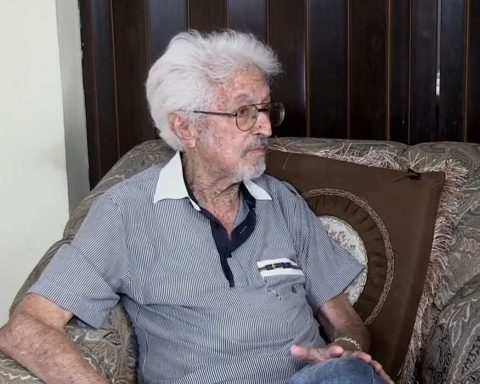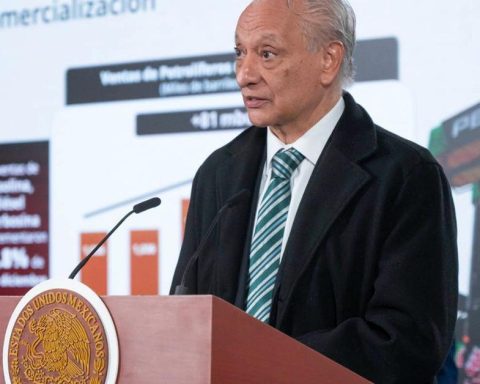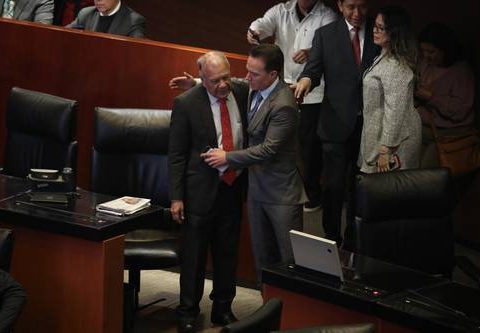Three decades ago a norm returned the goal to petty football. Colombian goalkeeper René ‘El loco’ Higuita, famous for his outings with the ball at his feetbelieves he has inspired this small revolution in the most popular sport in the world.
Just before the Barcelona-1992 Olympic Games, FIFA regulated “the back pass”. Goalkeepers who subsequently receive a teammate’s service with their hands will be punished with an indirect free kick.
Strongly criticized by the goalkeepers of the time, who barely used their feet to kick the goal, the measure sought to revive the show after the lackluster World Cup in Italy-1990, the one with the lowest goal average in history (2.2).
The goalkeepers were the protagonists with their rigged practice to take the ball with the hands to waste time.
With the rule, “FIFA put an end to something that was horrible, in the 1990 World Cup Almost all the teams played backwards to give the ball to the goalkeeper,” historian Luciano Wernicke recalls in conversation with AFP.
Goalkeepers like the Argentine Sergio Goycochea, the Costa Rican Luis Gabelo or the Italian Walter Zenga, to mention a few examples, “had the ball in their hands for a long time”adds Wernicke, author of books on soccer curiosities.
Amidst the conservatism of the time, a goalkeeper with long curly hair and a multi-colored sweatshirt changed the paradigm. René Higuita played with Colombia that World Cup as a “sweeper goalkeeper”who generated offensive play with his passes, and without fear of going out with the ball at his feet and dribbling to the middle of the pitch.
“El loco”, outstanding collector of free kicks and penalties, He is now convinced that FIFA was “inspired” by his game to draft the rule.
– “Higuita Law” –
From the arch of the Colombian team, Higuita was a sensation in that World Cup, although he made a mistake in the round of 16 that ultimately cost the team elimination.
In a failed dribble he gave the ball to the Cameroonian Roger Milla, who scored the double (2-1) with which he took the coffee growers out of the tournament.
Thanks to the so-called “Higuita Law” in Colombia, football “is much faster now, (there is) more mobility, every day the goalkeeper has to work a little more with his feet to contribute to the team,” the Colombian told AFP.
Today’s goalkeeping coach for Atlético Nacional de Medellín he believes he was the person “who contributed to that change.”
“Soccer greats like Péle or Maradona” were “very good players, but they have not changed a rule in FIFA”, loose with confidence during a video call.
Although the historian Wernicke clarifies: “It is not that the norm is changed by Higuitabut for all the other archers who were not like Higuita”.
The Colombian was “the only goalkeeper who did not speculate” with the loss of time, he adds.
– “Surprise” –
Higuita smiles mischievously when remembering that during the first matches with the norm “some” of their “clueless” colleagues “had the ball returned to them and they caught it with their hands”.
Contrary to the exporter, who he started in football as a child as a field player and finished his career in 2008 with 43 goals, the goalkeepers were unfamiliar with the game outside their area.
Santiago Cañizarez, Spain’s starter at the 1992 Olympics, recently recalled the sensations in that first tournament where the instruction was applied:
“For us that was a surprise (…) We weren’t used to it and we didn’t know that it could ever be a part of our lives,” he told Olimpics.com.
Others like the legendary Barcelona goalkeeper Andoni Zubizarreta set their opposition. The law “limits the goalkeeper”, he complained in 1992, according to statements collected by El País.
Despite its few devotees, with the norm the annotations increased. The World Cup in the United States-1994, was the one with the highest goal average (2.7) since 1970.
“That is the best rule that has been changed in the last 40 years, made football more dynamic,” says Wernicke.
Thirty years after the popular “Higuita Law”, FIFA once again questions the waste of time in a sport that loses fans.
Higuita gives the go-ahead to experience new modifications in the regulation. “There is a lot of talk about taking real time (of the game) as in basketball and the idea is not a bad one, “says” El Loco “.


















